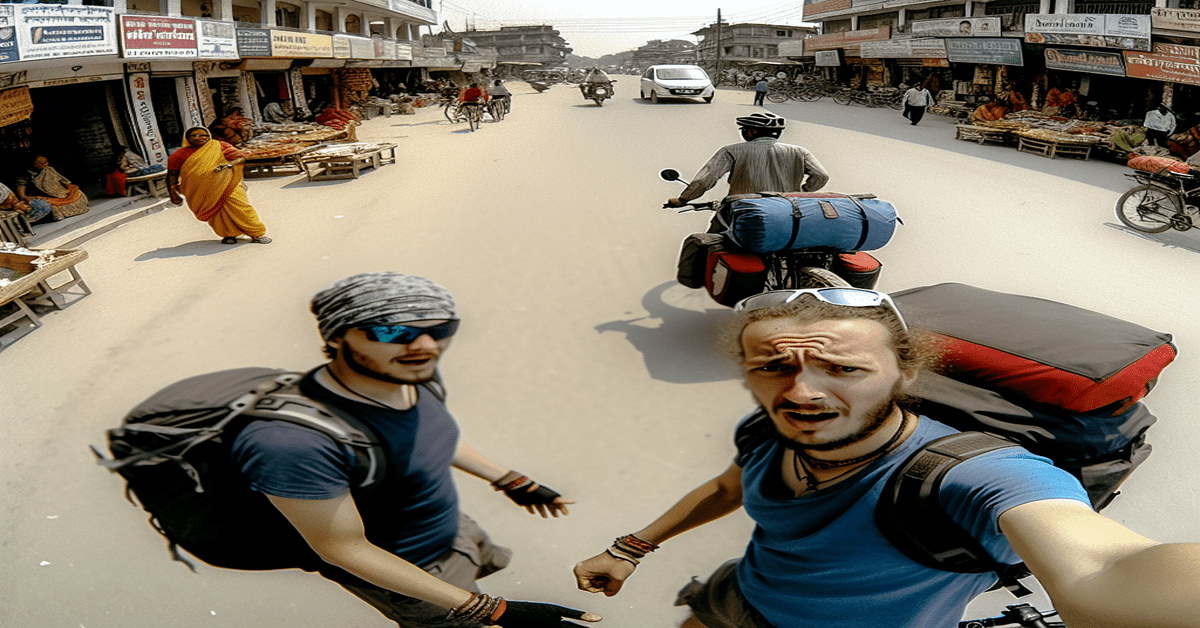The Perils of Overreliance on Digital Navigation: A Cautionary Tale
In today’s digital age, we’ve become increasingly reliant on technology to guide us through our daily lives. From smartphones to GPS devices, we trust these tools to lead us to our desired destinations without a second thought. However, a recent incident involving two French cyclists serves as a stark reminder of the potential pitfalls of blindly following digital navigation.
The cyclists, whose names have not been disclosed, set out on an ambitious journey to travel from India to Nepal. With their sights set on exploring the breathtaking landscapes and immersing themselves in the rich cultures of these countries, they embarked on their adventure with enthusiasm and determination. Little did they know that their trust in Google Maps would lead them astray.
The Wrong Turn That Changed Everything
As the French cyclists navigated their way through the winding roads of India, they relied heavily on Google Maps to guide them towards their destination in Nepal. However, somewhere along the way, they took a wrong turn. Unbeknownst to them, the digital navigation tool had led them off course, and they found themselves in the city of Bareilly in the Indian state of Uttar Pradesh.
It wasn’t until they reached Bareilly that the realization dawned upon them. They were far from their intended destination, and their reliance on technology had betrayed them. The cyclists were left feeling confused, frustrated, and uncertain about how to proceed.
The Importance of Local Knowledge and Verification
This incident highlights the crucial importance of combining digital navigation with local knowledge and verification. While tools like Google Maps have revolutionized the way we navigate, they are not infallible. Errors can occur, and relying solely on these tools can lead to unexpected and sometimes dangerous situations.
When embarking on a journey, especially in unfamiliar territories, it is essential to do thorough research and gather information from multiple sources. Consulting local maps, seeking advice from locals, and cross-referencing digital navigation with physical landmarks can help mitigate the risk of getting lost or ending up in unintended locations.
The Need for Contingency Planning
The French cyclists’ experience also underscores the significance of contingency planning. When venturing into unknown areas, it is crucial to have backup plans and emergency protocols in place. This includes carrying physical maps, having offline access to important information, and establishing communication channels with trusted contacts.
In the case of the French cyclists, their unpreparedness for the unexpected turn of events left them vulnerable and exposed. Had they taken the necessary precautions and planned for potential setbacks, they might have been better equipped to handle the situation and find their way back on track.
The Future of Digital Navigation
As technology continues to advance, it is likely that digital navigation tools will become even more sophisticated and reliable. However, it is important to remember that these tools are designed to assist us, not replace our own judgment and common sense.
Moving forward, it is crucial for individuals and businesses alike to strike a balance between leveraging the benefits of digital navigation and maintaining a healthy skepticism. By combining technology with human intuition, local knowledge, and thorough preparation, we can minimize the risks associated with overreliance on digital tools.
Lessons Learned
The story of the French cyclists serves as a valuable lesson for all of us. It reminds us to approach technology with a critical eye, to verify information from multiple sources, and to always have contingency plans in place. By doing so, we can harness the power of digital navigation while mitigating its potential drawbacks.
As we continue to navigate the increasingly digital world, let us remember the importance of balance and the value of human judgment. Together, we can embrace the benefits of technology while remaining vigilant and prepared for the unexpected twists and turns that life may bring.
#DigitalNavigation #TravelSafety #ContingencyPlanning
-> Original article and inspiration provided by NDTV
-> Connect with one of our AI Strategists today at ReviewAgent.ai


